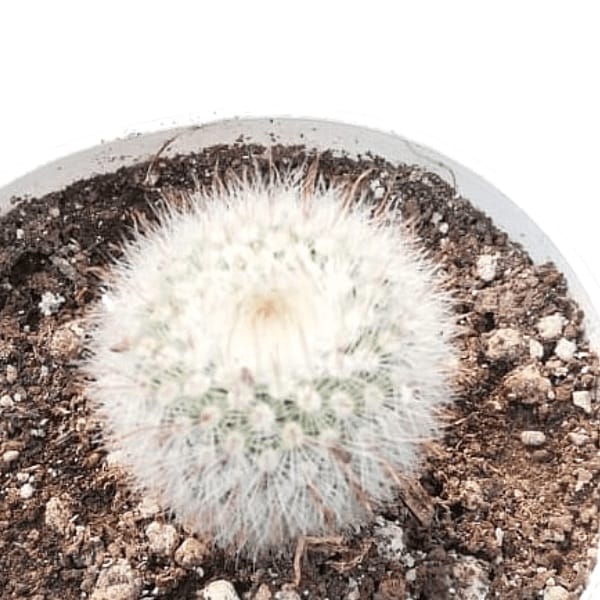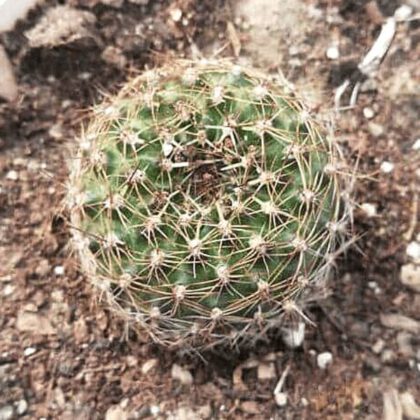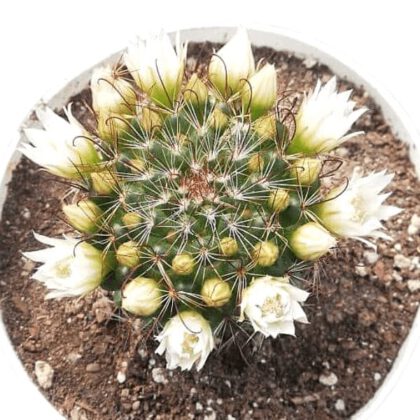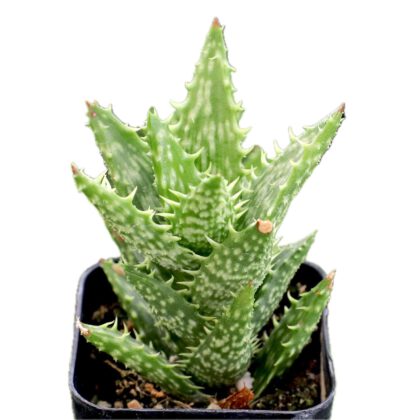Plant Care
- Light: Parodia scopa thrives in bright, indirect light. It can tolerate some direct sunlight, especially in the morning or late afternoon, but protect it from intense midday sun, which can cause sunburn.
- Watering: Water sparingly, allowing the soil to dry out completely between waterings. During the active growing season (spring and summer), water more frequently, but reduce watering in winter when the plant is dormant.
- Soil: Use a well-draining cactus or succulent potting mix. The soil should provide excellent drainage to prevent water from sitting around the roots, which can lead to rot.
- Temperature: Parodia scopa prefers temperatures between 59-86°F (15-30°C) during the growing season. It can tolerate slightly cooler temperatures but should be protected from frost.
- Humidity: This cactus species prefers low to moderate humidity levels typical of arid environments. It can adapt to indoor conditions but benefits from good air circulation.
- Fertilization: Feed sparingly with a balanced, water-soluble fertilizer diluted to half strength during the growing season (spring and summer). Avoid fertilizing during the dormant period in winter.
- Container: Choose a small pot with drainage holes to accommodate the compact size of Parodia scopa. Ensure the pot has adequate drainage to prevent waterlogging.
- Pruning: Trim any dead or dried-up portions of the cactus as needed to maintain its shape and health.
- Propagation: Propagate Parodia scopa from offsets (pups) that develop around the base of the mother plant. Allow offsets to dry and callus before planting them in well-draining soil.
- Pests: Watch for common cactus pests such as scale insects, mealybugs, and spider mites. Treat infestations promptly with insecticidal soap or neem oil.
- Support: Parodia scopa is generally self-supporting and does not require additional support under normal conditions.




